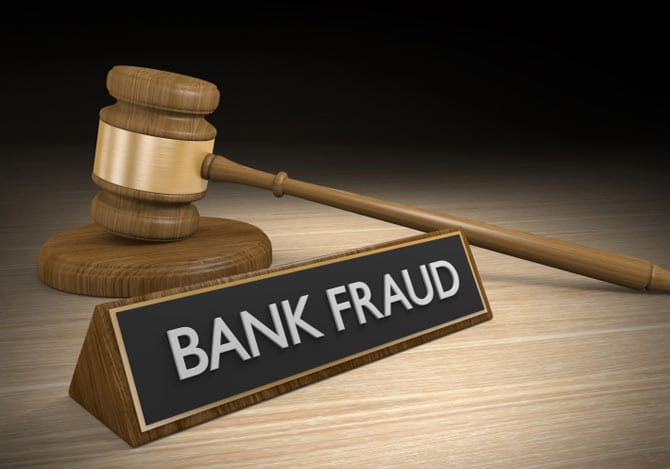In-Depth Analysis: The Indictment of Letitia James—Justice Served or Political Revenge?
A deep dive into the federal fraud charges against the New York Attorney General, the controversial prosecutor behind them, and the political firestorm igniting a national debate about the integrity of the American justice system.
In a move that has sent shockwaves through the American political and legal landscapes, New York Attorney General Letitia James, a prominent and outspoken critic of President Donald Trump, was indicted by a federal grand jury in Virginia on Thursday. The charges, bank fraud and making false statements to a financial institution, have ignited a fierce debate, with supporters of James decrying the indictment as a blatant act of political retribution, while the prosecution maintains that “no one is above the law.” This in-depth analysis will unpack the intricacies of the case, the key players involved, and the far-reaching implications for the American justice system.
The Charges: A Closer Look at the Allegations
The indictment, handed down in the Eastern District of Virginia, centers on a mortgage James obtained for a property in Norfolk, Virginia, in 2020. Prosecutors allege that James, in order to secure a more favorable mortgage rate, falsely declared the property as a secondary residence when she, in fact, intended to use it as an investment property. According to the indictment, this misrepresentation allowed her to save approximately $18,933 over the life of the loan.
The “Second Home Rider” that James signed is at the heart of the prosecution’s case. This document, a standard part of many mortgage agreements, stipulated that she would use the property primarily for her “personal use and enjoyment for at least one year.” However, the indictment claims that she instead rented the property out to a family of three.

James’s legal team has vehemently denied these allegations, characterizing any inaccuracies on the mortgage application as unintentional clerical errors. They argue that James never intended to deceive the lender and that she had been transparent about her intentions for the property.
Legal experts have also raised questions about the validity of the case. Some have pointed out that the financial benefit James allegedly received is a very small amount to trigger a federal prosecution. One former federal prosecutor, speaking on the condition of anonymity, called the amount “bupkis.” Others have questioned whether James’s actions even violated the terms of her mortgage agreement, which may not have explicitly prohibited renting out the property. Georgetown law professor Adam Levitin, in a blog post, noted that the “Second Home Rider” does not prohibit renting the home outright, but rather prevents the owner from giving control over rental decisions to someone else, and that this restriction only applies for the first year of the agreement. The indictment does not specify when James rented out the property or for how long.
The Political Firestorm: A Case of “Weaponization of the Justice System”?
The indictment of Letitia James cannot be viewed in a vacuum. It comes against a backdrop of intense political polarization and a history of public clashes between James and President Donald Trump. James has been one of Trump’s most vocal critics and has led several high-profile investigations into his business dealings.
Most notably, her office won a massive civil fraud judgment against Trump and his company, the Trump Organization. In that case, a New York judge found that Trump had fraudulently inflated his net worth to secure favorable loans and other financial benefits. While an appeals court later overturned the hefty fine, the finding of fraud was upheld.
Given this history, it is no surprise that James and her supporters have framed the indictment as a politically motivated attack. In a statement, James called the charges “baseless” and a “grave violation of our Constitutional order,” accusing Trump of a “desperate weaponization of our justice system.”
These accusations are further fueled by the fact that the indictment of James comes just two weeks after the same U.S. Attorney’s office indicted former FBI Director James Comey, another prominent critic of the former president. This has led many to believe that the Justice Department is being used to settle political scores and to target Trump’s perceived enemies.
The Controversial Prosecutor: Who is Lindsey Halligan?
At the center of this controversy is Lindsey Halligan, the U.S. Attorney for the Eastern District of Virginia who brought the charges against both James and Comey. Halligan’s appointment to this powerful position has been a source of significant controversy in itself.
A former personal lawyer for Donald Trump, Halligan has no prior prosecutorial experience. She was appointed to her current role after her predecessor, Erik Siebert, a career prosecutor, resigned. According to reports, Siebert had expressed concerns that the evidence against both James and Comey was insufficient to bring charges.
Halligan’s lack of experience and her close ties to Trump have led to accusations that she is a political loyalist who is willing to do the former president’s bidding. Her appointment has been described as a “dangerous escalation” in Trump’s efforts to use the Justice Department for his own personal and political gain.
What’s Next? The Legal Battle Ahead
Letitia James is scheduled to make her initial court appearance on October 24th in Norfolk, Virginia. Her legal team is expected to mount a vigorous defense, arguing that the charges are baseless and politically motivated. They will likely file a motion to dismiss the case, arguing that it is a “vindictive and selective prosecution.”
The case against James is likely to be a long and complex legal battle. It will be closely watched by the public and the media, and its outcome will have significant implications for the American justice system. If James is convicted, it will be a major victory for Donald Trump and his supporters. However, if she is acquitted, it will be a major blow to the credibility of the Justice Department and will further fuel accusations of political persecution.
Conclusion: A Test for the American Justice System
The indictment of Letitia James is more than just a legal case; it is a test for the American justice system. At its core, this case raises fundamental questions about the rule of law, the independence of the Justice Department, and the potential for political influence to corrupt the legal process.
Whether Letitia James is ultimately found guilty or innocent, the very fact that this case is being brought has already had a profound impact on the public’s trust in the justice system. It has highlighted the deep divisions in American society and the extent to which a former president is willing to go to settle political scores. The outcome of this case will be a defining moment for the American legal system, and it will be a test of whether the principles of justice and fairness can withstand the pressures of partisan politics.
In this video, Lindsey Halligan is named U.S. Attorney for the Eastern District of Virginia. Lindsey Halligan named U.S. Attorney for Eastern District of Virginia






